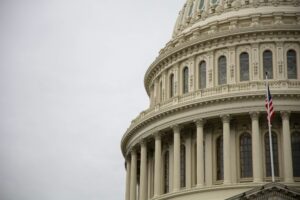New York’s Potential Shift on Non-Competes
What This Could Mean for Employers?
The New York legislature has recently passed a bill that will prospectively ban all non-compete agreements within the state. The proposed Bill No. 3100A § 191-d is awaiting approval from Governor Kathy Hochul, and if signed into law, it would change the way employers protect themselves from competitors in New York. But what does it mean for you?
What Does the Bill Say?
First, the bill defines “non-complete” quite broadly to encompass any agreement between an employer and an employee that prohibits or restricts someone from obtaining employment after their current working relationship expires. It also defines “covered individuals” to mean anyone who performs work or services under a condition of economic dependence, basically all employees. While it will only apply to new contracts, and all existing non-competes will be grandfathered in, it will apply to any renegotiated contracts with existing employees.
What Doesn’t the Bill Cover?
There are a number of items the bill doesn’t restrict. For example, the bill does not restrict an employer’s ability to enter into a “fixed term of service” contract with employees. Any contracts that prohibit the disclosure of trade secrets or confidential client information are still acceptable, as are contracts that prohibit the solicitation of customers.
Can Employees Sue?
If Governor Hochul signs the bill, the new legislation would grant employees the right to initiate a civil lawsuit against employers who are in violation. Courts may void such non-compete agreements and order relief, including enjoining certain conduct, payment of liquidated damages, awarding lost compensation, and awarding attorneys’ fees and costs. While the damages may not exceed $10,000 per employee, the bill does require that damages be paid to every affected and covered individual.
What is the Statute of Limitations?
As it stands, the bill sets a two-year statute of limitations. Importantly, that clock does not just run from the date of signing, but from the most recent of four different events:
- When the agreement is signed
- When the employee learns about the agreement
- When the employee is terminated
- When the employer first attempts to enforce the non-compete agreement.
Impact on Pennsylvania Businesses with New York Ties
If signed into law, New York will join the ranks of California, North Dakota, Oklahoma, and Minnesota in banning non-compete agreements. For Pennsylvania-based businesses with employees in New York, the potential results of Bill No. 3100A § 191-d are unknown.
The current draft of the bill does not address whether the bill would apply to businesses located in Pennsylvania that have employees who reside in New York; nor does it address whether it would apply to Pennsylvania residents who work for businesses that are located in New York. Those questions will be resolved through the courts
Ultimately, if you are a business operating in Pennsylvania with New York residents as employees, and you have non-compete clauses in your contracts, it would be wise to closely monitor the case law as this law evolves.
Dan Lynch is the Founder and Managing Partner of The Lynch Law Group. With questions about business contracts, non-compete clauses, or other legal matters, contact him at (724)776-8000 or via email at dlynch@lynchlaw-group.com.
Previous Contributions from Attorney Lynch
The Indemnification Clause | Contract Issues for Small Businesses





